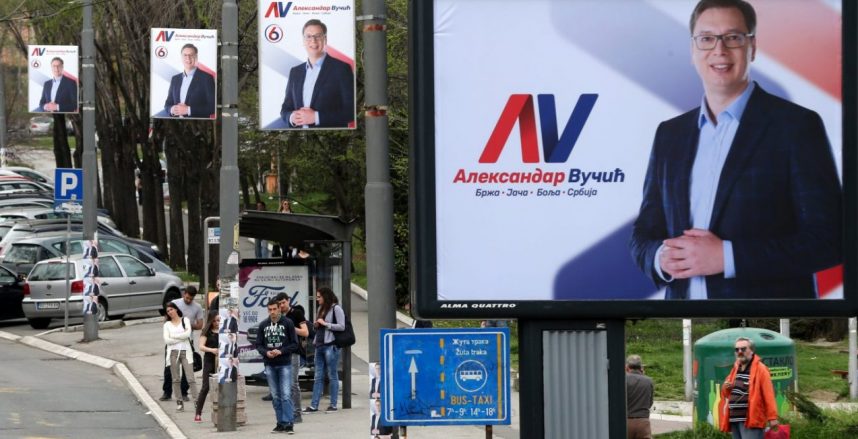
Social network says it deleted almost 9,000 accounts that were promoting Serbia’s ruling Progressive Party and its leader, President Vucic, and so violating company policy on manipulation and spam.
Twitter has removed almost 9,000 accounts that were “working to promote Serbia’s ruling party”, the Serbian Progressive Party said on Thursday.
“Toward the end of last year, we identified clusters of accounts engaged in inauthentic coordinated activity which led to the removal of 8,558 accounts working to promote Serbia’s ruling party and its leader,” Twitter announced.
Toward the end of last year, we identified clusters of accounts engaged in inauthentic coordinated activity which led to the removal of 8,558 accounts working to promote Serbia’s ruling party and its leader.
— Twitter Safety (@TwitterSafety) April 2, 2020
The social networking company explained that it had updated its archive of “state-backed information operations with some recent account networks we’ve removed from our service”.
These identified and removed accounts were all associated with five countries: Egypt, Honduras, Indonesia, Saudi Arabia, and Serbia.
Serbia was by far the top country in terms of the number of removed accounts, numbering 8,558. Twitter removed 5,350 accounts associated with Saudi Arabia, 3,104 linked to Honduras, 2,541 accounts linked to Egypt and 795 fake accounts linked to Indonesia.
“These behaviors are in violation of our policies and are a targeted attempt to undermine the public conversation”, Twitter explained.
The company also said it was “making publicly available archives of Tweets and media that we believe resulted from potentially state-backed information operations on our service”.
Under Twitter’s policy on manipulation and spam, “coordinated activity that attempts to artificially influence conversations through the use of multiple accounts, fake accounts, automation and/or scripting” is not allowed.
Media in Serbia have often reported that online activists of the Serbian Progressive Party, so called “bots”, are very active on social networks. Some are reportedly employees of state-owned companies or public institutions.